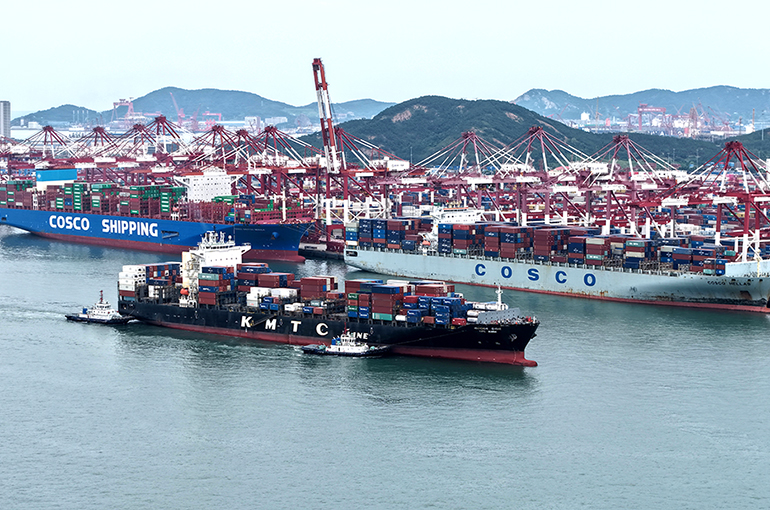 US Port-Entry Fees on Chinese Vessels Won't Have Big Impact, Insiders Say
US Port-Entry Fees on Chinese Vessels Won't Have Big Impact, Insiders Say(Yicai) Oct. 10 -- Experts believe that the United States’ new port fees on vessels owned, operated, or built in China will not have as big an impact on the Chinese shipping and shipbuilding industries as initially feared.
These new measures will initially affect Chinese shipping companies' operational costs, with the impacts then spreading to shipyards and equipment suppliers, Luo Wen, a shipping supply chain expert, told Yicai. Despite that, China's robust supply chain foundation and new energy strengths will remain critical advantages, he added.
From Oct. 14, the US will impose port-entry service fees of USD50 per net ton on Chinese-owned or operated vessels, USD18 per net ton or USD120 per container on Chinese-built ships that are not owned or operated by a Chinese firm, and USD150 per car-equivalent unit on all foreign-built vehicle carriers.
Maritime consultancy Alphaliner estimated that these new fees will likely add USD3.2 billion in costs for the world's top 10 shipping companies next year, with China Cosco Shipping, the state-owned shipping giant that operates Cosco Shipping Lines and Orient Overseas Container Line, expected to bear about half of that.
"The shipping and major equipment industries involve large contracts," Luo noted. "Even initial payments of 10 percent to 20 percent represent significant amounts, making order cancellations unlikely."
Shipping companies, including Cosco Shipping, have indicated they will not raise prices to offset the increased port fees, given the weak freight demand. Instead, they will opt to absorb costs through operational optimization.
"We've consulted with shipowners and several industry peers, and none have announced price increases due to the new US port fees," Wang Zhicong, marketing director at Baosen Suntop Logistics Group, told Yicai.
This new US policy may not be sustainable in the long term because China's shipping and shipbuilding industries can maintain their competitive edge through efficiency, technological investment, and strong supply chain capabilities, said Chen Yang, head of shipping information platform Xinde Marine News.
These port-entry fees do not target only Chinese-built vessels but also and especially Chinese-owned or operated ones, a senior executive at Waigaoqiao Shipbuilding told Yicai. "They mainly affect vessels on US routes, regardless of shipowner nationality, and involve complex and sensitive issues of route deployment."
Waigaoqiao Shipbuilding's order extends to 2029, and they are mainly from Asian and European clients, with none coming from US clients, the executive added.
According to Clarksons Research, an international maritime and shipping research service provider, China holds over 40 percent of the global shipbuilding market, much ahead of South Korea and Japan.
Editor: Futura Costaglione